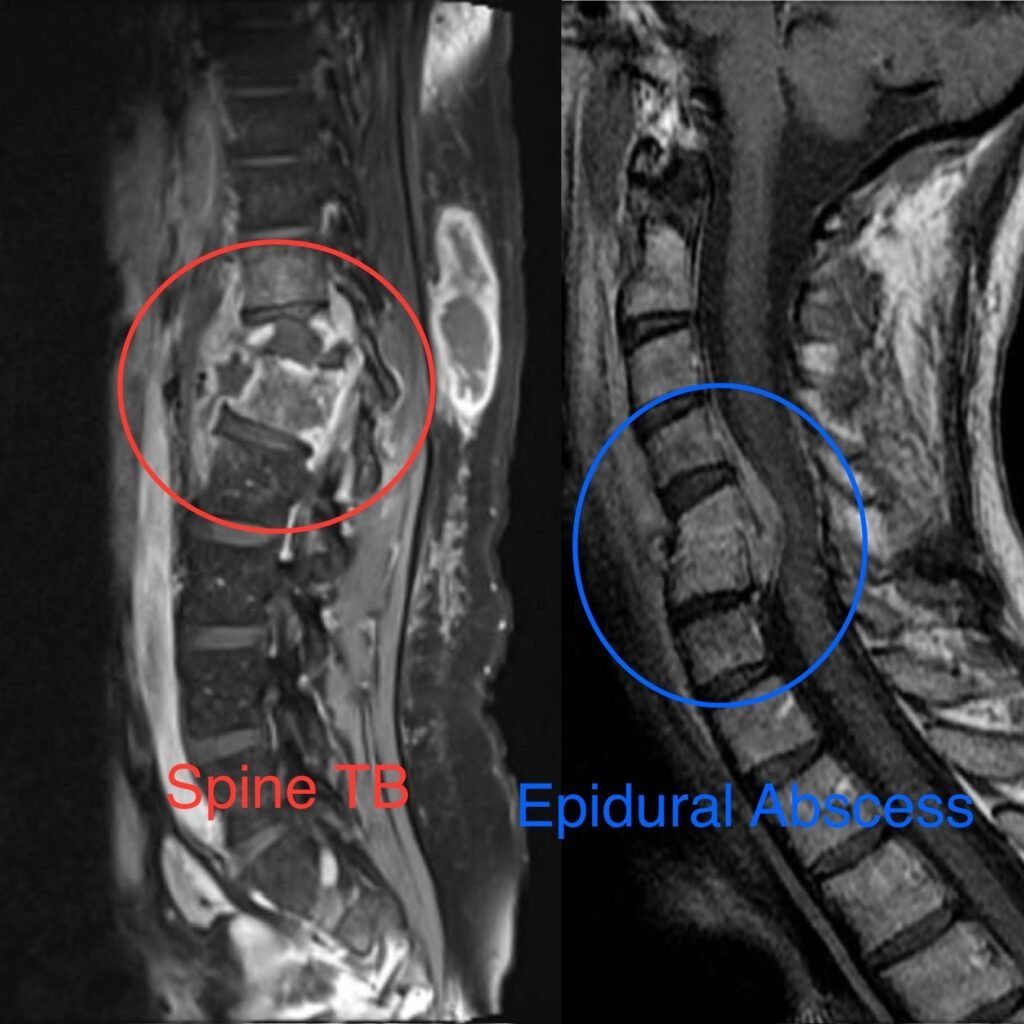Spinal Infections

What is it?
Spinal infections, also known as vertebral osteomyelitis or discitis, occur when bacteria or other pathogens infect the bones (vertebrae) or discs of the spine. These infections can be caused by bacteria, fungi, or viruses and can lead to inflammation, pain, and potential damage to the spinal structures.
Symptoms:
- Symptoms of spinal infections can vary depending on the type of infection, its location, and the severity of the condition.
- Common symptoms may include back pain, fever, chills, fatigue, swelling or tenderness over the affected area, and neurological deficits (such as weakness or numbness in the limbs).
Primary Symptoms:
The primary symptoms of spinal infections may include:
- Persistent or worsening back pain, particularly with movement or at night.
- Fever and chills, which may indicate systemic infection.
- Swelling, redness, or warmth over the affected area of the spine.
- Neurological deficits, such as weakness, numbness, or difficulty with bowel or bladder function, which may indicate compression of the spinal cord or nerves.
Diagnosis/Treatment:
- Diagnosis typically involves a physical examination, medical history, and imaging studies such as X-rays, CT scans, or MRI to evaluate the extent of the infection and identify any associated complications.
- Treatment options may include antibiotics (for bacterial infections), antifungal medication (for fungal infections), pain management, and in severe cases, surgery to drain abscesses, remove infected tissue, or stabilize the spine.
What to Expect After Surgery:
- After surgery for spinal infections, patients can expect relief from symptoms such as pain, fever, and neurological deficits.
- Recovery time varies depending on the extent of the infection and the type of surgery performed, but most patients can expect to gradually improve over several weeks to months.
- Physical therapy may be recommended to help regain strength, mobility, and function in the affected limbs.
Risk & Complications:
- As with any surgery, there are risks associated with procedures to treat spinal infections, including infection, bleeding, nerve injury, spinal fluid leakage, and complications related to anesthesia.
- Additionally, there may be a risk of incomplete eradication of the infection, recurrence of symptoms, or complications specific to the underlying condition being treated.
However, complications are relatively rare, and the benefits of surgery often outweigh the risks, particularly when conservative treatments have failed to provide relief or when there is evidence of progressive neurological deficits or spinal instability that require surgical intervention.
Spine Treatments
About Dr. Bharat
Dr Bharat Shinde completed his M.Ch Neurosurgery from the National Institute Of Mental Health And Neurosciences (NIMHANS), Bangalore which is an institute of National importance.
